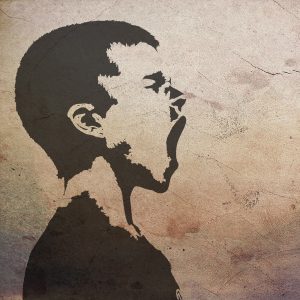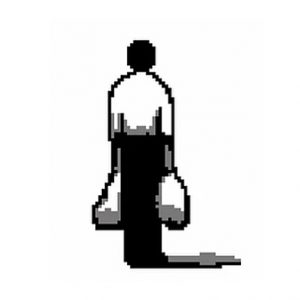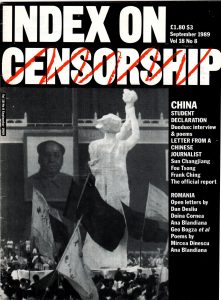10 Jun 2022 | Belarus, Brazil, China, Hong Kong, Opinion, Philippines, Russia, Ruth's blog, Ukraine, United Kingdom, United States

This week has been awful.
The news has been devastating and all consuming. But that feels like it’s becoming the norm.
In Belarus, our friends remain under attack – Andrei and Irina’s trial began on Monday. We have no idea of the outcome.
In Brazil, Dom Phillips and his colleague Bruno Araújo Pereira remain missing – but with reports of fresh blood being found, our hearts break for their loved ones.
In Ukraine, we see daily the death and destruction caused by the Russian invasion, up to 200 Ukrainian soldiers killed a day. And the reports of cholera in Mariupol are beyond my comprehension in the twenty-first century.
In Russia, the crackdown against dissidents continues unabated – with limited coverage. 160 people are currently defending criminal cases for anti-war statements and this week a close associate of Alexei Navalny was tried in absentia and placed on the international wanted list.
In the Philippines, Ferdinand Marcos Jr has been elected as the next President and made his first visit to the US as President-Elect – seemingly the legacy of his parents no longer an electoral or diplomatic issue.
In Hong Kong, six brave democracy protesters were arrested for the temerity of marking the anniversary of Tiananmen Square.
In the US – the inquiry into the Capitol Riot is officially underway – highlighting just how fragile our collective democracy is and how desperately we need to cherish and protect it.
And that’s before I even touch on what is happening in the UK, the ongoing political crises, and the ideologically incoherent approach to freedom of expression protections.
And in too many countries this is now framed through the prism of a cost-of-living crisis as a scale that we haven’t seen for a generation.
My only comfort is that we know what is happening. In a digital age it is very difficult for any leader, however repressive, to completely silence dissent about their domestic actions. The joy of a free press in democratic countries is that it enables us to be informed and to demand more and better – from our own leaders and from those that claim a global role. It enables us to analyse the scale of the threat and to try and prioritise our efforts in assisting those brave enough to stand against tyranny.
Index exists to provide a platform for the persecuted. We work every day with those who refuse to be silenced. The least we can do is listen to them and then join their fight.
4 Jun 2021 | China, Hong Kong, Opinion, Ruth's blog
[vc_row][vc_column][vc_column_text]

Illustration: Badiucao
32 years ago, on 4 June 1989, the world bore witness to the realities of a totalitarian regime as the Chinese Communist Party deployed the People’s Liberation Army against unarmed protestors in Tiananmen Square. We still don’t know exactly how many people were brutally murdered although best estimates are in the thousands; the crackdown that followed across China shaped the country as we know it today and continues to resonate throughout the world.
‘Tank Man’, the image that is now synonymous with the events of Tiananmen Square, which shows an unarmed man seeking to block the movement of a tank by simply standing in front of it is both awful and awe-inspiring; it affected many of us in the decades that have followed, including me.
The Tiananmen Massacre shaped both my politics and my personal values. When you are lucky enough to be born and raised in a democracy the images from Beijing, from both the protests and the aftermath, were truly beyond comprehension. I was not yet 10 years old on the day of the massacre but I can remember the image of the man and a tank vividly.
It will surprise no one to learn that I grew up in a very political household and my extraordinary mum sat me down to explain what was happening thousands of miles away and why it was so important – but all I can really remember was fear for the man who was standing in front of a tank and an overwhelming sense of his bravery.
My home was one that celebrated collective action, a home that embraced the concept of solidarity and was internationalist – the image of the Tank Man was as crucial to my understanding of the world around me as the Miners’ Strike and the Poll Tax Riots. And without realising it, it was the events of Tiananmen Square on that fateful day which cemented my commitment to equality and justice – it also for the first time made me aware of the importance of a free press and free expression and of how the actions of one person on behalf of others can change the world.
These principles of anti-censorship, of solidarity, of equality and of justice are not only my values, but they are also the values of Index on Censorship and were those of our founders. As we reflect today on the events of 1989, we will remember not only the people who were killed for demanding a level of democracy in those fateful protests, but the people of Hong Kong who for the first time will be prevented from marking the anniversary because of the National Security Law imposed by the Chinese Communist Party. We stand with them today as we stood with the protestors in Tiananmen Square.[/vc_column_text][/vc_column][/vc_row][vc_row][vc_column][three_column_post title=”You may also want to read” category_id=”41669″][/vc_column][/vc_row]
1 Aug 2018 | China, Magazine, News and features, Student Reading Lists

China: student declaration, the September 1989 issue of Index on Censorship magazine.
Subscribe to Index on Censorship magazine here
Index has covered censorship in China since 1973. While the government’s approach has evolved in today’s digital era, in the aftermath of the Tiananmen Square massacre of 1989, key themes surrounding the suppression of political dissent and free expression remain as pressing as ever. Explore them in this reading list featuring prominent Chinese academics, activists and writers.
Tiananmen Remembered
May 2009 vol. 38 no. 2
Wang Dan, a leading figure in the 1989 protests, talks to the writer Xinran about the fallout and the legacy of Tiananmen. Wang Dan was released from prison in 1998 and exiled to the United States. He completed his PhD at Harvard University. He is chairman of the Chinese Constitutional Reform Association and on the advisory board of Wikileaks. Xinran worked as a journalist and radio presenter in China. She now lives in London. Her books include The Good Women of China (Vintage), Sky Burial (Vintage) and China Witness (Chatto & Windus).
Read the full article here.
Tiananmen Square
June 1989 vol. 18 no. 8
Student leaders Liu Xiaobo, Zhou Duo, Hou Dejian and Gao Xin declared a hunger strike in Tiananmen Square just before the massacre on the night of 3-4 June 1989. This translation of excerpts of the declaration was first published in The Independent, 10 June 1989.
Read the full article here.
From Coming back to life: written for the ‘Tiananmen mother’
December 2010 vol. 39 no. 4
This poem was written by Chinese poet Shi Tao who has faced censorship, government threats and imprisonment for his work. It was translated by English scholar Frances Wood.
Read the full article here.
A date (not) to forget: The author on why her book about Tiananmen would be well-nigh impossible to research today
April 2018 vol. 47 no. 1
China has passed a law to make telling the wrong sort of history punishable. Louisa Lim, author of a book on the Tiananmen Square massacre, says she wouldn’t be able to research her book today.
Read the full article here.
Chinese whispers
September 1999 vol. 28 no. 5
In 1999, the 10th anniversary of the Tiananmen massacre passed quietly enough but as British journalist John Gittings writes, the desire for change and for democracy in China is as strong as ever.
Read the full article here.
DuoDuo’s view from death
September 1989 vol. 18 no. 8
One of China’s leading young poets Li Shizheng, known as DuoDuo, was in Tiananmen Square on the day of the massacre. He flew to Britain the day afterwards, where he was interviewed by Gregory Lee for Index.
Read the full article here.
Subscribe to the print edition Index on Censorship magazine here for £35 or take out a digital subscription via Exact Editions (just £18 for the year, with a free trial).
7 Jun 2012 | Asia and Pacific, Index Index, minipost
Chinese dissident Li Wangyang, who was jailed for over 22 years after the 1989 Tiananmen Square protests, was found dead in a hospital ward in Shaoyang city, Hunan province, on Wednesday. Family members found the dissident, 62, apparently hanged by a bandage around his neck in his hospital room. Security and hospital authorities have said he had committed suicide but his family has said Li died in strange circumstances. Police are also reported to have removed his body without the family’s permission.



